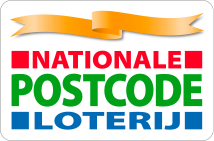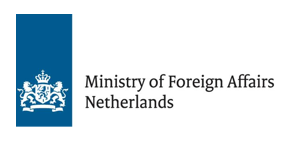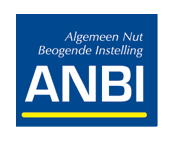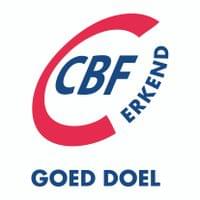Guidelines & Eligibility
Cultural & Artistic Responses to Environmental Change
1. Eligible Candidates
Support is only given to individual persons from, living, registered and working in our working countries.
This mentorship programme is specifically meant for individuals with ±8-15 years of relevant professional experience, individuals who do not have this level of experience are not eligible to participate in the programme.
The Goethe-Institut and Queen Mathilde Cultural Fund hold a broad disciplinary understanding of arts and culture. With artists and cultural practitioners we mean people who have an individual artistic practice – be it as a visual artist, curator, writer, musician, performer, designer, architect, interdisciplinary artist, etc. Individuals who are arts managers, facilitators, academic researchers or other, without an individual artistic practice are not considered to fall under this category, and as such are not eligible to apply.
Previous grantees of the Queen Mathilde Cultural Fund are not eligible to apply unless their previous grant is finished and closed before the application submission deadline for this call.
2. Eligible Expenses
This award is not restricted to a pre-decided budget, but must be used for the development of the concept outlined in their application. Participants are expected to actively participate in all aspects of the mentorship programme, and be available for all scheduled meetings, travels and communications. Continued support is dependent on this active participation. The Queen Mathilde Cultural Fund will communicate the given expectations in a timely manner.
The Queen Mathilde Cultural Fund and Goethe-Institut cover the costs related to the mentorship programme itself, including travel expenses, visa costs and stay. Individuals are responsible for their own travel insurance. Further details on the covered expenses are communicated with successful applicants at a later date.
3. Eligible Applications
Only complete submissions from eligible candidates and received in the platform before the deadline can be considered.
4. How to Apply
You can apply for this opportunity through our online application system. The application includes:
- A completed application form, including personal details of the applicant;
- A pitch that presents your motivation to joining this mentorship programme and elaborate on what environmental issue and/or sustainability approach will your project engage with. (This can be submitted in any format: video, text, audio, etc. and should be a max. of 5 minutes or 2 pages);
- A reference letter from a person or organisation that knows your work and/or has worked with you in the past. (should be signed and contain the contact details of the referee);
- Supporting materials related to your work. This must include at least a portfolio and a CV.
5. Notification of decision
All applicants will be notified on the outcome of their application by the Queen Mathilde Cultural Fund by December 2021 at the very latest.
6. Contracts
The Queen Mathilde Cultural Fund and Goethe-Institut will draft a contract to be signed by the successful award recipients. The contract will include contract start and end dates, award amount, reporting requirements, regulations of participation, programme schedule, general provisions, implementation etc.
EVALUATION PROCESS
This Call aims to ensure that individuals are selected in a transparent and fair manner, according to clear criteria and a rigorous selection process where due consideration is given to all proposals that meet our eligibility requirements. The process is as follows:
Phase 1: Intake and Evaluation of Applications
The Programme Committee of the Queen Mathilde Cultural Fund and Goethe-Institut evaluate all eligible applications according to the assessment criteria outlined below, and select a short-list of most eligible applications for further consideration.
Phase 2: Decision Making
The short-listed applications are assessed by a group of international external advisors, who are experts in the intersection of the arts and environmentalism. Additionally the programme mentors are asked to review all shortlisted applications and the applicants’ references are approached.
Based on the outcomes of the external assessments, the Programme Committee make a final selection of award recipients. In the selection special attention is paid to diversity, geographical spread, focus of work, level of engagement with the subject matter, and quality of practice.
All applicants are informed of the outcome of their application by December 2021 at the very latest.
Phase 3: Reporting, Evaluation and Communications
Once approved, successful applicants are notified about the award and participation in the programme. A contract is drafted and signed by the applicant and the Queen Mathilde Cultural Fund. The grantees are announced on the Goethe-Institut and Queen Mathilde Cultural Fund’s websites.
Active participation in the programme, timely reporting and consistent communication are preconditions for continued support.
After completion, the mentorship and the degree to which the objectives have been fulfilled are evaluated and documented. The Queen Mathilde Cultural Fund and Goethe-Institut will communicate about participants’ work through their websites and within their networks.
Criteria for selection of applications
The following criteria are used for assessing applications:
- Original: the work is innovative and artistically interesting;
- Transformative: the work engages with pressing social/political issues, is challenging, prompts feelings, and is thought-provoking;
- Context-specific: important in the local context, contributes to the enhancement of the context, rethinking history, societal impact;
- Inclusive: the work is linked to the ultimate aim of more inclusive societies, connecting people in ways that resist marginalisation, oppression and division;
- Impactful: award will make a real difference to the professional development, engagement and impact of the individual's practice in the context;
- Potential to Accelerate: The individual has the potential to become a leader in the discipline and already has an existing track record within the cultural discipline, the work is engaged and focused on relevant social issues within context, on average 8-15 years of career.



